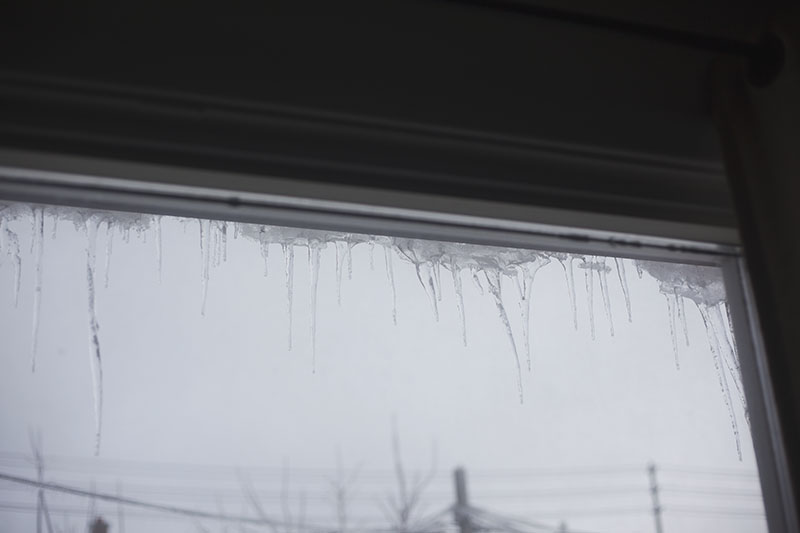Every emergency situation has the opportunity to be a learning experience. I don’t care if you’ve planned for the situation well, if you’ve gone through a similar situation before, or if you’re more prepared than 99% of the population would have been – each and every time you go through an emergency situation, when it’s over, you should time to look back and assess to see what can be improved for next time.
How do you do something like this? Run back through the events of the emergency situation in your mind. Ask yourself a series of questions, all related to improving your situation were it to happen again another time. Then implement, as quickly as possible and if it’s feasible and affordable at the moment. Because there’s no time like right after an emergency has struck to motivate you to be more prepared. Use that motivation to your advantage.

7 Things To Do Immediately After an Emergency Situation Is Over
1. Ask yourself if what the most difficult part of the emergency was.
Usually, an emergency situation is quite complex and there are many aspects to it that could possibly make it difficult. In our experience with a 5 day power outage in the Toronto winter a few years back, for example, the worst and most difficult aspect was dealing with the cold. Food was a secondary issue, though realistically, it was less of an issue and more of a mild discomfort since we did have enough food stockpiled, but we preferred to have warm food to help us keep warm (and we didn’t have a quick and easy way to heat up our food). We ate no-heat-necessary canned foods, sandwiches, and anything else that was left in our fridge, which was fine. Nothing like our discomfort from the lack of heating since we were very ill prepared for that.
After an emergency situation is over, figure out what the most difficult part of the emergency situation was and concentrate your efforts on fixing that in advance of the same emergency repeating itself. How is a matter of the following questions…
2. Ask yourself if there was anything specific you could have done differently that would have made the emergency easier.
Could you have learned a new skill? Simply have had something in the back of your trunk instead of at home? What could’ve made the emergency situation easier if you’d have just done it in advance? Go do it now. Teach yourself now. Move things around now. Use your desire not to go through such a difficult situation again as motivational fuel.
3. Ask yourself what you could have had that would have made the emergency situation easier.
Usually, this isn’t a tricky question. In hindsight, it’s obvious what could’ve made an emergency easier if you’d only bought the items beforehand.
When it came to the power outage experience Thomas and I had, things that would’ve made our lives easier during the emergency situation quite honestly were things we were planning on buying, but slacked on. Yup, it’s totally possible to be caught off guard with an emergency, even when you’re serious about prepping. Don’t worry about it, though. Cut your losses, take the lesson at face value, and grab the opportunity to be more prepared for next time.

4. Write down a physical list of the items that would’ve come in handy.
I’d advise jotting down a physical list of all the things you think would’ve helped you if you’d had them for this past emergency. I did this after our own emergency situation, putting together a list of winter emergency supplies we would’ve been grateful to have had on us. Some things on that list I already had, but a lot of them I didn’t, and it would’ve been silly to wait to make that list because right after the emergency situation happened, all the things I could’ve used were still fresh in my mind.
5. Prioritize this list of items that would’ve helped you out.
Let the emergency rearrange your priorities. Rearrange the list in order of items that would really have helped you out more if you got them before the emergency to those that would have been helpful, but not particularly necessary.
6. Get the items that would have been most helpful right away. Don’t hesitate.
Just gun for the purchases straight away. You will never feel more urgency than immediately after a difficult experience to prevent another difficult experience from happening. Use that motivation to make sure you’re more prepared next time – just bite the bullet and buy the items that really would’ve made a huge difference. Of course don’t dwindle down your emergency fund, but if you can comfortably afford them, buy them. There is no point in waiting if they’re important.
For those items that aren’t as important, you have them in a list now and so you won’t forget about buying them eventually, and can take your time working away at buying the items on that list throughout the months/years that follow. Many of the “extra” items will be redundancies, which is a good thing, but not as necessary as those few items at the top of the list that would be most helpful.
7. Ask yourself what the ideal situation would have been, and how close you are to it.
Early this year, I did this kind of a thought experiment myself when I wrote up an article about staying warm indoors when the power’s out and it’s freezing outside. 100% one of the best ways I have discovered to reflect on an emergency situation.
What I thought up as a perfect resolution to my power-outage-in-Toronto-winter emergency situation:
9. Build a brick room-sized shed/garage separate from the house and put a fireplace there along with a gas cooker.
You know how comfortable you’ll be there? Our neighbours back in Toronto have this kind of a setup and so when the power went out, Thomas and I quite literally spent every morning and afternoon with them, enjoying our time sitting around the fire chatting away, before sadly hopping off to our cold home for nighttime.
Make sure you build this place large enough that you’ll be able to throw everyone in the family comfortably in at night, and you’ll literally be happy as clams throughout the outage. Obviously, again, make sure to practice fire safety (nothing flammable near the fire, good ventilation at all times, and make sure someone’s up whenever the fire’s going), but pretty much, with as much wood as you can get stockpiled, you’ll be cozy no matter how long the power outage lasts. You’re set as long as you’ve got firewood for the fireplace and enough gas for your cooker.
Living the high life during a winter emergency this is.
Now that I knew what the ideal was, even though I couldn’t quite yet afford it, I knew what my end-goal was, and from a prepping perspective, knowing this meant I knew how to invest my money when I had it in a way that wouldn’t be wasteful.

What Other Steps Should Be Taken After an Emergency Situation Is Over?
Can you think of any additional things preppers should be doing after an emergency has taken place and ended?
What kinds of reassessments have you made after having gone through an emergency situation yourself? Do these types of situations make you re-structure your preps?
Let me know in the comments down below!
‘R’ and Elise… Great article and great suggestion by ‘R’.
As to Item #1 on your list. Who doesn’t like hot food. Let’s be resourceful and use our ‘noodles’… ha, ha, ha!
How did the pioneers cook? Wood, buffalo chips, coal… Just don’t use the new Teflon-type’ products with plastic handles when doing this. I have both propane gas and charcoal grills. We lost power in my urban area for 4-days, a few years ago. The wife went into a ‘brain-freeze mode’. After a few minutes of discussion, (well, I thought it was… but must have misunderstood her panic), I told her we had an excess of charcoal briquettes and 2-propane tanks. We ate hot/warm food! Also, look into a Kelley-Kettle type system for hot water. It only takes 2-3 charcoal briquettes at the most, to heat the water inside. If you live in an apartment complex, buy a propane grill and put it out on your balcony, or store it indoors after it cools, especially if you live on a first or second floor.
BTW, stored charcoal will not ‘spontaneously combust’ if stored in a dry place. A complete myth. To keep it ‘high and dry’ put a 35-50 gallon trash bag over it, depending on your charcoal bag size. The end of the summer is a good time to purchase this. I usually keep 4-5, 20-pound bags in my garage over the winter months and 4-5, 20-pound bottles of propane.
An alternative to a fancy grill can be easily made. Put a few patio blocks on the cement or wood deck for insulation. Build a wall with patio blocks in the shape of a ‘U’, or three sided rectangle/square on top of those blocks, then put a rack or grill on the top of the sidewall blocks and ‘Wha-la-Mumfree’… you have a means of cooking. BTW, the older refrigerators have a metal grill between layers. Most are aluminum, so don’t get them too hot, but you can cook with them at a lower heat… just takes a bit longer. Or, go to your local hardware store and look at replacement stainless steel/cast iron grill racks. I prefer the SS. Oh another, BTW, put a layer of blocks on the top of your metal grill, for stability.
Use cast iron pots and pans on your grills/BBQ equipment. Buy high quality, really, it’s worth the value… and a few sets of insulated hot-pads/gloves… you know, that nasty ‘burn factor’ that doesn’t smell like bacon cooking. If water is scarce, you can use salt, or clean sand to wash/clean the pots and pans. Do some research as to how one should ‘season and store’ these items. I have several ‘older pots and pans’, that outdate my current age… and that’s old, believe me, because I can’t find any of my body part replacements at the local auto part store!
As to replenishing supplies, well that can made to be easy. I keep a notebook and or pad, as to what was consumed, lost, damaged, etc., for the next trip to the store. The same goes for a log of medical needs, who took meds, dosages, etc., in the event you eventually have the need to get to a physician/hospital.
I have also invested in a gasoline & propane gas/combination generator. There are some good brands out there. Again, do your research. During the 4-day power outage in my area, gas could not be pumped. After a 50-mile round trip for gas, (which is the type of generator I had at that time), and a few 5-gallon cans later… we got by. BTW, don’t open your fridge or freezer unless it is necessary, period! Most will keep items cool for up to 72-hours. Buy a generator that can handle up to the 9,000 watt range of power output and can handle 120 & 220 voltage.
Heating a few interior rooms was accomplished with an infra-red floor heater. Put a few patio-type blocks under these to keep from damaging the floor. Propane heaters indoors can and in some cases, lead to asphyxia/carbon monoxide poisoning. I heat one room at a time with the infra-red, by covering door openings with a blanket, then open 1-room at a time on the same floor, using the same method. I’ve got up to 3-rooms at a time with one heater; then began relying on the long-johns, layered clothing, etc.
The balance of your article is great and informing. Also remember who/whom, was the most reliable/less desirable, in an emergency situation. When another occurs, give them something to do, but no too high on your ‘reliable/responsible person(s) list… also weed out the moochers and get them to return supplies as soon as possible… meaning now!
Have a great week to both of you.
Really great cooking tips! I had no idea that people believed charcoal could spontaneously combust. Wonder where they got this idea?
A log & list of things to replace is a very good idea. We usually have so much stock (it’s much cheaper to buy in huge bulk on eBay here, when it comes to medical things at least) that it’s unlikely we’re to run out after an emergency or even two. Food is another story, but I never feel like I *have to* have a specific kind of food, and so if I have everything full of cans and jars that are easy to keep for a very long time, I’m happy. Water is another story since I have no balcony, and I’m high up, but we live in the UK, and honestly, rain is not ever going to be an issue here, so I figure I can rig up some sort of collection method with a bucket outside my window, still need to test though. In the meantime, I do have water in the house.
I honestly feel so lucky to be in the UK and not have to worry about living through those Canadian winter if something goes wrong. It was a nightmare going without electricity in Toronto for a week, I don’t think I would’ve been happy at all if that dragged out to a month :( High quality winter clothes and layers do wonders, but nothing is better than not having to deal with real cold at all. And knowing what Canadian winters are like, I can’t help but laugh when people say it gets cold here in England.. no it really doesn’t!
Thanks for the great read, and hope you’re having a great week as well!
Don’t forget to replace what you did have but used up or deplinished. A fireplace is no good if you used all the wood during last month’s emergency.
Excellent point, R!